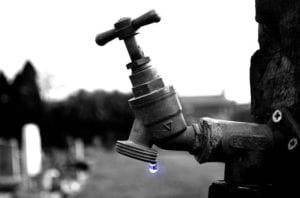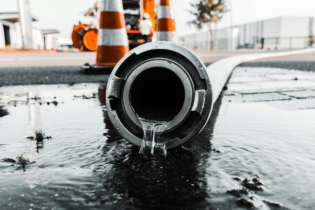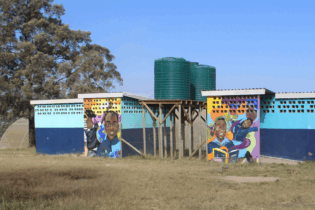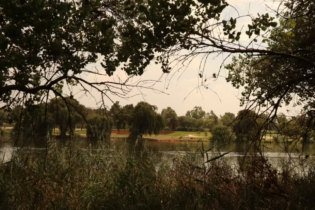 The City of Ekurhuleni will begin rationing water supply, or “water shedding”, in an attempt to deal with the low availability of water in Gauteng. However, the act of water rationing can have severe consequences for the water system.
The City of Ekurhuleni will begin rationing water supply, or “water shedding”, in an attempt to deal with the low availability of water in Gauteng. However, the act of water rationing can have severe consequences for the water system.
After repeated, and unheeded, calls for residents to conserve water, the municipality said it had “no choice but to take this drastic step”. Residents have only managed an average savings rate of about 3.5% a week, a long way off of the required 15%.
Ekurhuleni announced water restrictions in September 2016 and further said it would start levying penalties for excessive water consumption starting from October. In terms of the restrictions, businesses were required to reduce their water consumption by 15% of their average annual consumption and households not to exceed 25 kl consumption per month.
Thus far, roughly 3000 business units and 41 000 households have exceeded their allocated water usage and penalties levied during October amount to R1.7 million.
Gauteng hard hit
Although Gauteng managed to withstand the effects of the drought longer than most other provinces, the province is now feeling the full effects.
The Vaal Dam, one of the 14 dams within the Vaal River System which supplies approximately 12 million people and industries, continues to dwindle week on week. It is currently sitting at approximately 26.3% – its lowest level ever.
Last week the Gauteng Department of Cooperative Governance and Traditional Affairs (CoGTA) warned that the Vaal Dam is losing water levels at an increasing rate of 1 % every week. If the dam reaches a low of 25% the situation could become critical and more severe water restrictions would have to be implemented.
To combat this, the Department of Water and Sanitation (DWS) plans to release water from its reserve, the Sterkfontein Dam, into the Vaal Dam before the Vaal Dam drops below 25%.
Johannesburg Water has warned that if residents to not adhere to the current water restrictions, stage 3 restrictions could soon be implemented, which would spell water rationing for more of Gauteng.
Ekurhuleni rationing
Water rationing measures in Ekurhuleni will initially be implemented from 21:00 to 5:00 every night starting from Monday 7 November 2016. This means that there will be no water during this period in the affected areas.
The city has warned that if these measures do not achieve the required 15% reduction, it will be forced to implement rationing during the day as well.
Water rationing – the fatal mistake
Addressing the recent IMESA Conference, Dr Ronnie McKenzie, MD at WRP Consulting and Chair of the International Water Association (IWA) Specialist Group on Water Loss, highlighted the potentially disastrous effects of water rationing.
While water rationing or intermittent supply is usually implemented to save water, it invariable creates more leaks and opens up the opportunity for water to become contaminated. This is because taking a relatively steady hydraulic situation and changing it to one that fluctuates every day results in a more fragile system.
Turning the water pressure off will often fill the pipes with air which must escape once the pressure is turned back on. If the air valves are not functional, as is often the case, the system experiences a surge of pressure, or water hammer, which can create new pipe leaks or even cause pipe bursts.
Furthermore, the refilling spike that can be observed when the system is initially re-pressurised can damage water meters.
In addition to this, if the system is depressurised, the potential arises for the surrounding groundwater to enter the supply through any leaks in the system. If the groundwater is contaminated, the water supply may become contaminated where there is insufficient chlorine to eliminate contaminants. This can result in water-borne diseases such as cholera and typhoid.
Dr McKeznie pointed to studies which show that intermittent supply actually results in very little water saving and highlighted that it could in fact increase costs because of the damage it can cause.
Ultimately, Dr McKenzie argues that intermittent supply should only be implemented as an absolute last resort and water pressure reduction should be used as much as possible to save water and avoid water shedding.
 The City of Ekurhuleni will begin rationing water supply, or “water shedding”, in an attempt to deal with the low availability of water in Gauteng. However, the act of water rationing can have severe consequences for the water system.
The City of Ekurhuleni will begin rationing water supply, or “water shedding”, in an attempt to deal with the low availability of water in Gauteng. However, the act of water rationing can have severe consequences for the water system.





